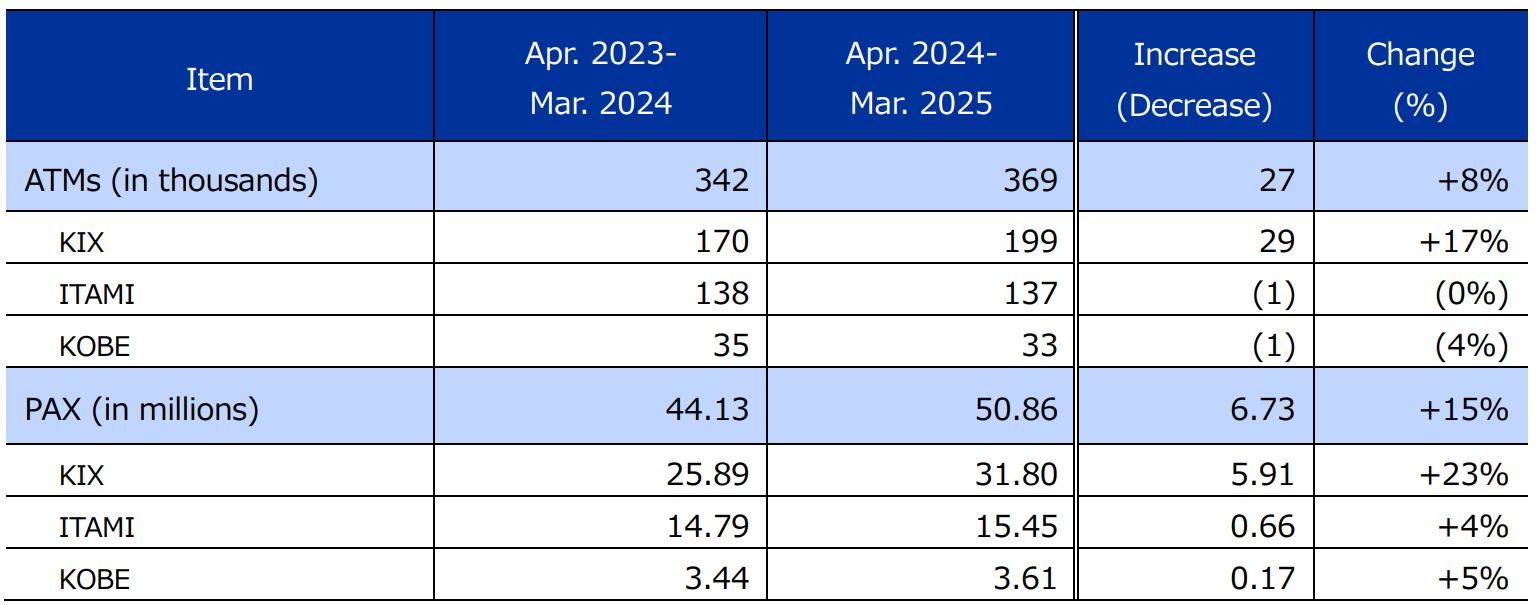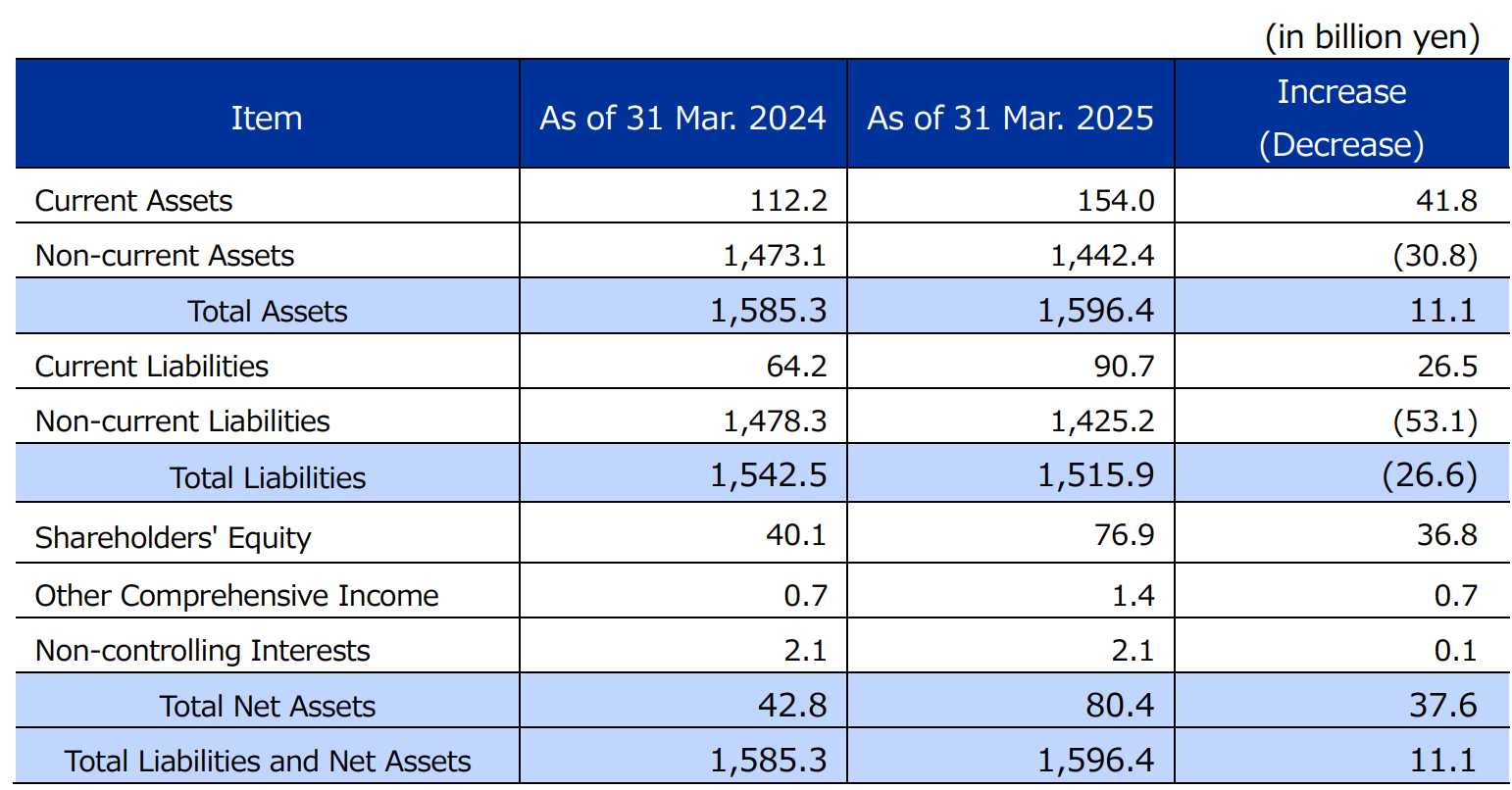Kansai Airports today announced its consolidated financial results for the fiscal year ended 31 March 2025, posting operating revenues of 245.4 billion yen, operating profit of 64.6 billion yen, ordinary profit of 54.0 billion yen and net profit of 36.8 billion yen.
In the fiscal year under review, operating revenues increased by 31%, operating profit increased by 30.6 billion yen, ordinary profit increased by 30.7 billion yen, and net profit increased by 21.3 billion yen compared to the previous fiscal year.
This growth was driven by the recovery and expansion in demand for international flights and strong sales at the new commercial area of Kansai International Airport Terminal 1 building, which opened in December 2023.
Consolidated Profit and Loss Statement (in billion yen)
 1 Net Profit/Loss: Net Profit/Loss Attributable to Company Shareholders
1 Net Profit/Loss: Net Profit/Loss Attributable to Company Shareholders
Aviation Traffic
The total number of aircraft arrivals and departures at the three airports reached 369,000, marking an 8% increase from the previous year. The number of air passengers also hit a new record high for the fiscal year at 50.86 million, a 15% increase from the previous year.
For international flights, the number of international passengers set new records. Both international passenger arrivals and departures, as well as the total number of international passengers, reached their highest levels since Kansai International Airport opened. This was largely driven by an increase in flights and passengers traveling to and from China.
For domestic flights, the number of aircraft arrivals and departures, as well as the number of passengers, remained steady compared to the previous year. However, Kobe Airport saw a record high of 3.61 million passengers.

Consolidated Balance Sheet
As of 31 March 2025, the total assets amounted to 1,596.4 billion yen, an increase from the previous fiscal year-end, due to an increase in cash and deposits driven by higher EBITDA.
Additionally, the total liabilities decreased to 1,515.9 billion yen because of payments for operating rights, which reduced liabilities related to public facility operation rights.

